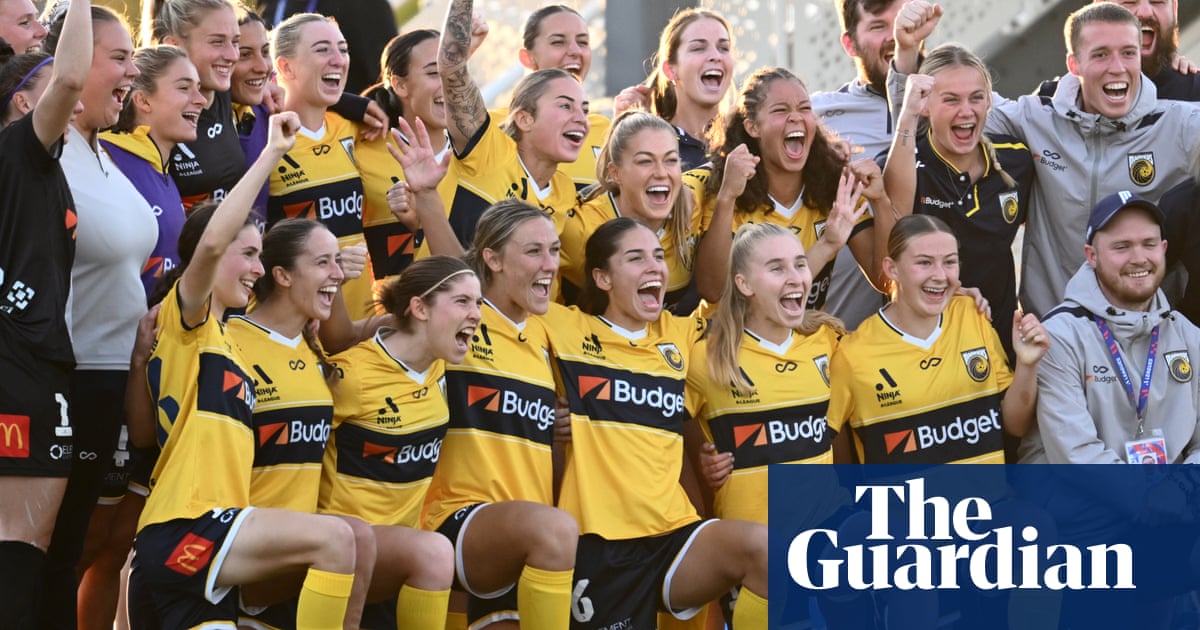TheCentral Coast Marinersweren’t supposed to crash the A-League Women grand final, but they face Melbourne Victory at AAMI Park on Sunday.
Two years ago they didn’t even exist. The Mariners’ women’s programme was in its 13th year of inactivity after being mothballed for financial reasons (serious concerns over the ever-impecunious club’s viability still linger). On the field, they made a celebrated return for the 2023–24 season, riding the wave of momentum bornfrom Australia hosting the 2023 Women’s World Cupto stun Victory in an elimination final, before running into the eventual champions Sydney FC in the semi-finals.
This season was expected to be similar: Emily Husband leading a unit that would be competitive, but ultimately operate a tier below the league’sancien régimeof Sydney, Victory and Melbourne City.
With hindsight, perhaps a 3-1 win over Sydney on the opening day was an omen of this side’s refusal to be defined by expectations. After finishing fourth and defeating Canberra in an elimination final, few gave them much chance against a City side who were unbeaten in the regular season and pursuing the second trophy of what would have been a historic treble. As has become a defining trait under Husband, the Mariners were unbowed.
A 2-2 draw was secured in the first leg in Gosford. Then, after a moment of madness from City’s Lourdes Bosch got her sent off 25 minutes in, the Mariners pinched a 121st-minute winner in the second leg through Isabel Gomez, setting up this week’s date with destiny. Pinched might be the operative word given replays showed Gomez was at least a metre offside, only for the league’s lack of VAR to end City’s domestic season. But to focus entirely on one moment of controversy – embarrassing as it is for league administrators for a semi-final to turn on such a moment – is to discount the two years of work that went into the win.
One of two female coaches in the league, Husband will become just the fifth to coach in an Australian grand final this Sunday and the first since 2017. A Yorkshire native and former Leeds junior, she earned a rare opportunity in the Australian top flight after a successful stint with the semi-professional Sydney University, and has built a team that has consistently proved one of the toughest to beat in the league: disciplined, dogged and shrewd at adapting their approach week-to-week and in-game. All of this with one of the competition’s smallest budgets and without many seasons of continuity.
“Right from the first moment, it was about giving players opportunities they weren’t getting at other clubs,” said Husband. “Especially from an identification point, looking at those players that you know have the ability in them if you give them a little bit of confidence. This is what they play for. To continuously prove people wrong. Nobody picked us to be even in the top six this year, let alone get through to a grand final. So let’s keep surprising them.”
The Mariners’ chance of claiming a breakthrough title would appear slim given the strength of the Victory side awaiting them. Under Jeff Hopkins, who will be coaching in a seventh grand final, Melbourne’s navy blue contingent, as they so often do, have ended the season in irresistible form. Recording the most points and scoring the most goals in their history in 2024-25, they arrive on a 10-game winning run and without defeat in 15, success built upon a foundation of one of the best backlines in league history. In the semi-finals they faced an Adelaide side that had set records of their own. Victory swept them aside, winning 6-2 on aggregate.
While it wouldn’t be fair to compare their circumstances with those of the Mariners – the resources Victory give their women’s programme are far superior – they, too, have something to prove. For all the records set, Victory have played in the shadow of City’s invincible season in 2024-25, finishing two points adrift of the league leaders. A third title in five seasons, however, would give them the spotlight and ensure Kayla Morrison and co receive deserved recognition as one of the greatest teams in A-League Women’s history.
Sign up toMoving the Goalposts
No topic is too small or too big for us to cover as we deliver a twice-weekly roundup of the wonderful world of women’s football
after newsletter promotion
“I think it’s about being the best ever Victory team,” said Hopkins. “Teams of the past have won trophies, and they’ve still got that on this team. Most points, clean sheets, all those things that we’ve done, we still haven’t won anything. So that’s the test for us, and that’s what’s driving us on from next week.”
If you have any questions or comments about any of our newsletters please emailmoving.goalposts@theguardian.com.
This is an extract from our free weekly email, Moving the Goalposts. To get the full edition,visit this page and follow the instructions. Moving the Goalposts is back in to its twice-weekly format, delivered to your inboxes every Tuesday and Thursday.
